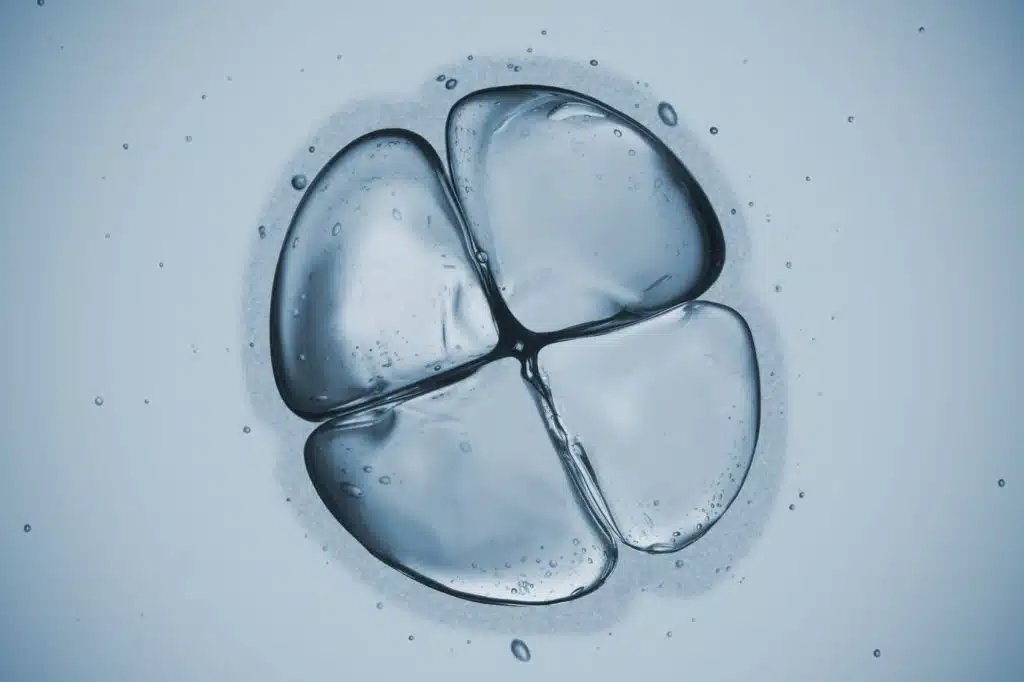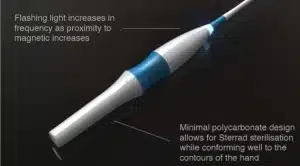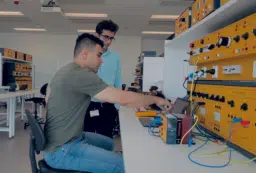A new medical device uses iron particles and a magnetic probe to nail down the spread of tumours.
Developed by Aidan Cousins with colleagues at the University of South Australia, the new approach is more sensitive and safer than existing methods for monitoring cancer.
“Pre-clinical trials of our approach suggest it gives a very clear picture of where tumours are most likely to spread,” Aidan explains.
“It will allow subsequent surgery and treatment options to be refined for better standards of care and improved prognosis.”
The new technique involves injecting biodegradable iron particles at the primary site of a tumour, from where – as part of their normal surveillance activities – cells of the immune system transport them to the draining lymph nodes.
“The first place primary cancers typically spread to is the lymph node that taps directly from that site,” says Aidan.
“The particles accumulate in the same place, and we use the probe to detect their magnetic properties as soon as 20 minutes after injection.”
Compared to radioactive tools currently in use for tracking cancer, Aidan’s magnetic technique offers 5 times better accuracy and is logistically simpler and safer for both patient and medical staff.
With the design of the magnetic probe now patented and pre-clinical trials complete, Aidan is working with collaborators to perform clinical testing.
Aidan presented his research at Fresh Science South Australia 2015.
Fresh Science is a national program that helps early-career researchers find and share their stories of discovery. Over 30 early-career researchers nominated for Fresh Science SA, which was held at the South Australian Museum (training) and The Lion Hotel (public challenge event).
Fresh Science South Australia was supported by the The University of South Australia, The University of Adelaide, Flinders University and the South Australian Museum.
Contact: Aidan Cousins, University of South Australia, couam002@mymail.unisa.edu.au






 Fresh Science is on hold for 2022. We will be back in 2023.
Fresh Science is on hold for 2022. We will be back in 2023.